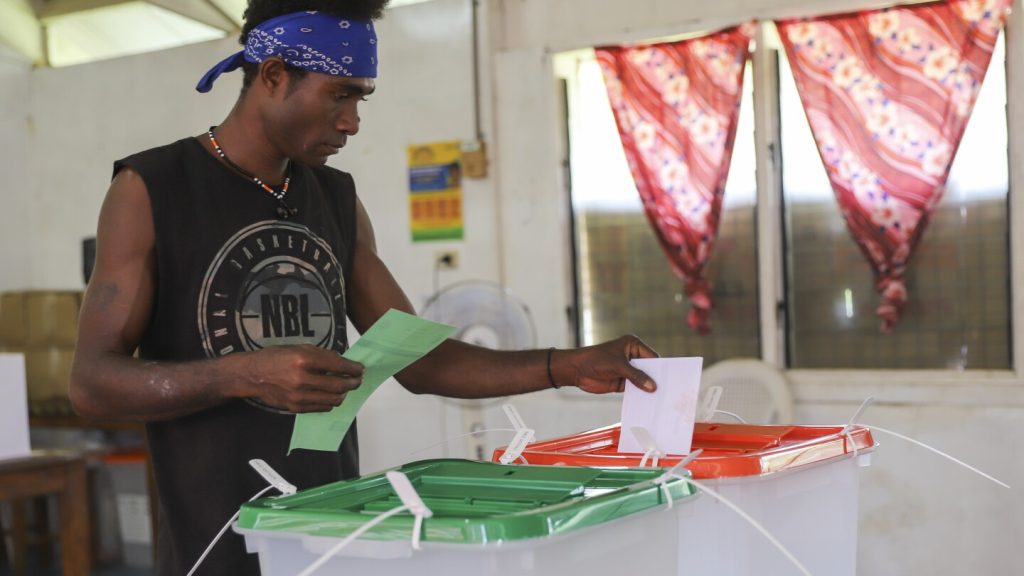Voting has closed in the Solomon Islands, in the first general election since the government switched allegiances from Taiwan to Beijing and formed a secret security pact with China. This election saw as many as 420,000 registered voters casting their ballots across 50 national seats, with the national vote coinciding with elections for eight of the 10 local governments. The nation’s closer relationship with China and a troubled domestic economy were key issues on the minds of voters as they made their choices at the polls.
Some voters in the Solomon Islands queued outside polling stations from 4 a.m., three hours before polling began, reflecting the high levels of engagement in the election. The voting ended at 4 p.m., with many voters flocking to booths early after seeing the growing crowds. The availability of early voting for select few voters led others to travel back to their home electorates in recent days, quieting the streets of Honiara and causing the main hospital to enter crisis mode due to a lack of staff. Despite previous disengagement from the political process, some, like hospital worker Loretta Maeohu, now see the potential for their vote to bring about change in the country.
The United States has been working to build diplomatic relationships with South Pacific island nations since the Solomon Islands signed a security pact with China. Recent claims by Russia’s Sputnik news agency and the Chinese Communist Party’s Global Times newspaper about U.S. involvement in an “electoral coup” have been refuted by U.S. Ambassador Ann Marie Yastishock. With over 1,000 polling stations scattered across the archipelago, Prime Minister Manasseh Sogavare, who is well regarded for his political acumen but criticized for backsliding on democracy, has been campaigning for support of his economic plans against the backdrop of closer ties with China.
Opposition candidates in the Solomon Islands have campaigned on re-evaluating elements of the relationship with China, including the 2022 security pact. Domestic issues such as shortages in health clinics and the rising cost of living have also been key campaign topics. Loyalties to candidates based on blood or church affiliations, as well as the illegal practice of vote-buying, have also influenced ballots. The police have warned of potential political disorder following the election, referencing the anti-government riot in late 2021 that caused significant damage to Honiara’s economy after Sogavare survived a no-confidence motion in parliament.
Australia has provided 25 million Australian dollars in election assistance, including logistical support for polling stations and ballots in remote areas. Despite the contentious security pact with Beijing, Sogavare has maintained that Australia remains the government’s preferred security partner. Australian military and police personnel, along with smaller contingents from New Zealand, Papua New Guinea, and Fiji, are on the ground to assist with logistics and security during the election. Vote counting will begin on Thursday, with a final result expected to be revealed after more than a week. The 50 elected lawmakers will then choose the next prime minister, a process that previously resulted in Sogavare being sworn in three weeks after the 2019 election.


